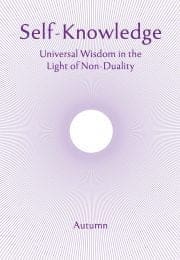Weaving the World: Bhagavad Gita Chapter 14
Chapter 14 of the Bhagavad Gita begins with these five verses:
I shall explain again the sublime knowledge through which the sages have reached perfection.
Those who turn to this knowledge and attain identity with Me are not born at the time of creation nor disturbed at the end.
The great Brahman is my womb. In that I place the seed. That is the origin of all beings.
Brahman is the ultimate womb, and I am the father, of every being born from any womb.
Sattva, rajas, tamas, which arise from Prakriti, bind the indestructible in the body.
Reading this like a novel might be unrewarding, but approaching it with care we may benefit much. First we could take in that we are being spoken to directly by God-Brahman-Self-Absolute. This is not to imply any naive beliefs about ultimate Reality, only that it is real, and we exist in That, and the intelligence of That exceeds our own. We are being told about knowledge, and that for one who knows, there is no death or birth. Evidently, this is meant to arouse our interest.
What is this liberating knowledge? It is about the ultimate source and nature of all that exists. To know this directly, as our own true Self, is to be free of death and all burdens.
In verse five it is said that the world is composed of three fundamental principles. In our modern idiom these are referred to as matter, energy and the laws of nature, or as inertia, force and the natural laws. In the philosophy expressed in the Gita, they are called the three Gunas: Tamas (inertia), Rajas (energy), and Sattva (law, or balance). We cannot observe the gunas directly, but we experience their effects (the same is true of inertia, force and natural laws). The gunas are understood as the threads of the fabric of all phenomena, underlying our states of mind as well as the world, and this chapter goes on to describe them in detail.
Most of our time is taken up in dealing with the world and our mind, that is, with the manifestations of the gunas. And so an understanding of their workings is useful knowledge. But knowledge of the gunas does not explain the ultimate origin of the world and ourselves. And so, before the teaching on the gunas begins, there come two verses on the supreme knowledge, of that which is not born and does not die.
This is the totality of which our minds are fragments, so the teaching is necessarily metaphorical, but the metaphors have precise correspondences. It is said that the origin of all beings is the womb of Brahman, and, speaking in the first person, Bhagavan (the supreme Being) says: ‘In that, I place the seed’.
Words are being used in an unusual way here to make an impression on our minds and prompt us to deeper reflection. The word Brahman is usually used as a name for the ultimate transcendent reality, in which there are no divisions between Self and other, or separations in space and time, and which thus cannot be said to act, change, or possess any finite qualities. That transcendent Reality is indicated here by the word ‘I’. In this sense, ‘I’ is the highest name and subject for meditation.
Subscribe or enrol for free guest access to read all of this article and Self-Knowledge online.
Already subscribed or enrolled? Log in:


